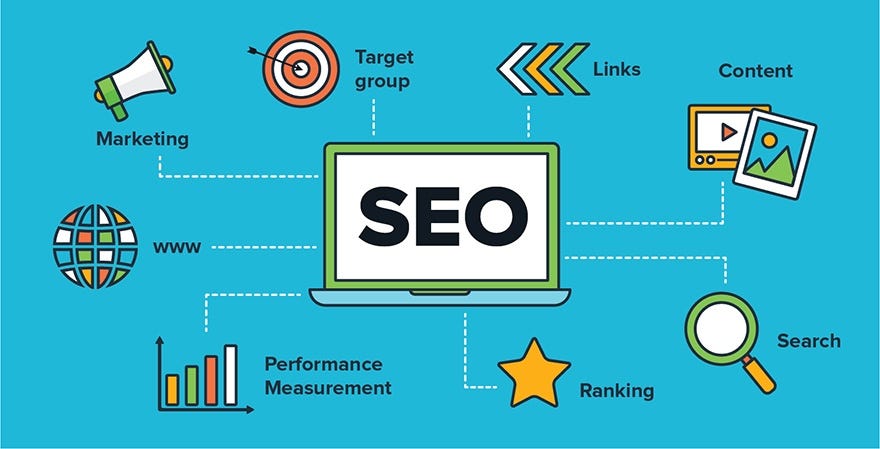Web-based applications have become an integral part of our lives. From online shopping to social media platforms, we rely on web-based applications for various purposes. As the demand for these applications continues to grow, developers are faced with the challenge of making them stand out in the crowded digital landscape.
One powerful tool that significantly impacts the success of web based application development is Search Engine Optimization (SEO). We will explore the critical role that SEO plays in web-based application development and how it can help developers and businesses achieve their goals.
Why SEO Matters in Web-Based Application Development?
- Visibility and Discoverability: A web-based application’s success hinges on its visibility to potential users. When people search for a solution that your application offers, it should appear in search engine results. Proper SEO techniques ensure that your application is visible to the right audience, increasing its discoverability.
- User Experience and Engagement: SEO is not just about keywords and links; it’s also about enhancing the user experience. Applications that load quickly, are mobile-friendly, and provide a smooth user interface tend to rank higher in search results. This improved user experience leads to higher engagement and user satisfaction.
- Competitive Advantage: The digital landscape is highly competitive, and your application competes with numerous others in the same niche. SEO helps your application stand out from the competition by improving its search rankings, ultimately attracting more users.
- Measurable ROI: One of the benefits of SEO is its measurability. You can track the performance of your web-based application through various analytics tools. This data allows you to make informed decisions and measure the return on investment (ROI) of your SEO efforts.
Key SEO Factors for Web-Based Application Development
Technical SEO:
- Website Speed and Performance: Fast-loading applications are favored by users and search engines alike.
- Mobile Responsiveness: With the rise of mobile devices, having a mobile-responsive application is crucial.
- Security: Ensuring the security of your application is not only essential for user trust but also for SEO.
On-Page SEO:
- Content Optimization: Creating high-quality, relevant content is key to SEO success.
- Keywords and Metadata: Properly optimizing content with relevant keywords and metadata improves search engine rankings.
- Internal Linking: Properly structured internal links help users navigate your application and improve SEO.
Off-Page SEO:
- Backlinks and Referral Traffic: Quality backlinks from authoritative sources and referral traffic can significantly boost your application’s credibility and ranking.
- Social Signals: Active and engaging social media profiles can contribute to your application’s overall online presence.
User Experience and SEO:
- User Interface (UI): An intuitive and user-friendly UI not only improves the user experience but also affects how search engines rank your application.
- User Experience (UX): A seamless and enjoyable UX keeps users engaged and coming back, which can positively impact SEO.
Challenges and Common Pitfalls
- Technical Challenges: Technical SEO can be complex and may require constant updates to keep up with search engine algorithm changes.
- Content Challenges: Creating high-quality, engaging content can be time-consuming and requires continuous effort.
- Algorithm Updates: Search engine algorithms are constantly evolving, and keeping up with these changes can be challenging.
Best Practices for SEO in Web-Based Application Development
- Choosing the Right Technology Stack: The technology stack you choose can impact the performance, speed, and security of your application. Make informed decisions about the tools and frameworks you use.
- Structuring URL and Navigation: Ensure that your URLs are structured in a way that is both user-friendly and SEO-friendly. Create a logical navigation system that helps users find what they need quickly.
- Creating SEO-Friendly Content: Craft content that addresses the needs and interests of your target audience. Use relevant keywords, headings, and metadata to improve search visibility.
- Monitoring and Analytics: Regularly monitor your application’s performance using analytics tools. Analyze user behavior and make data-driven decisions to optimize your SEO efforts.
Future Trends and Considerations
- Voice Search and SEO: With the rise of voice-activated devices, optimizing for voice search is becoming increasingly important.
- AI and Machine Learning in SEO: AI-powered tools and machine learning algorithms are changing the SEO landscape, providing new opportunities and challenges.
- Mobile-First Indexing: Google and other search engines are prioritizing mobile-first indexing, making mobile optimization a critical aspect of SEO.
Conclusion
SEO is a powerful tool that can make a significant difference in the success and visibility of your application. By understanding the key SEO factors, challenges, best practices, and future trends, developers and businesses can leverage the power of SEO to enhance their applications and reach a wider audience. Many app development agencies are offering premium web-based application development services with SEO optimization to improve the visibility of your product and services. The ongoing evolution of SEO in the web-based application industry makes it a dynamic and essential component of modern digital development.

